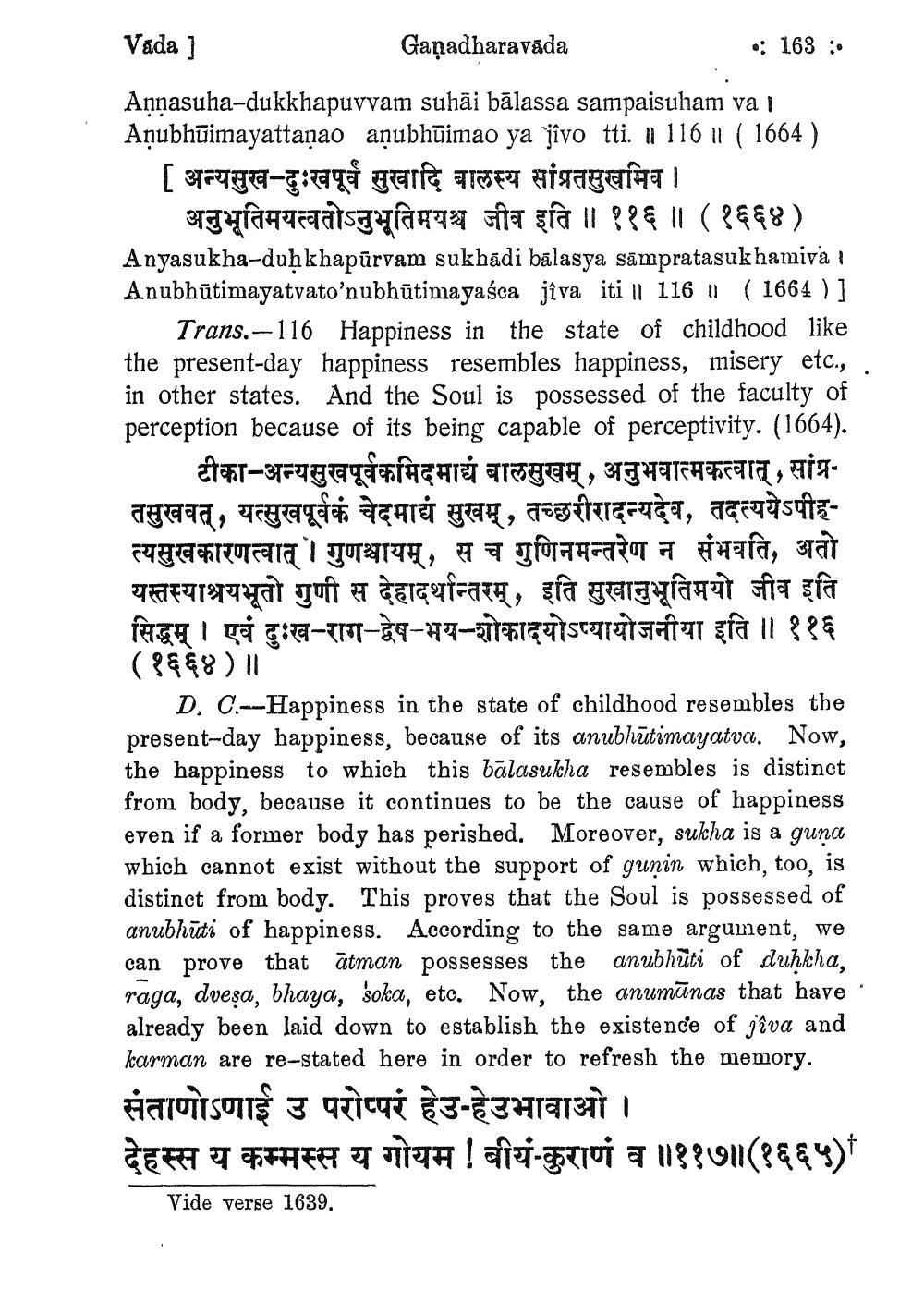________________
Vada ] Gañadharavada
•: 163 :Annasuha-dukkhapuvvam suhāi bālassa sampaisuham va i Anubhūimayattanao anubhūimao ya jîvo tti. Il 116 11 ( 1664 ) [ अन्यसुख-दुःखपूर्व सुखादि बालस्य सांप्रतसुखमिव ।
अनुभूतिमयत्वतोऽनुभूतिमयश्च जीव इति ।। ११६ ॥ (१६६४) Anyasukha-duḥkhapūrvam sukhādi bālasya sāmpratasuk hamiva i Anubhutimayatvato'nubhutimayasca jiva iti ॥ 116 ॥ ( 1664 ) ]
__Trans.-116 Happiness in the state of childhood like the present-day happiness resembles happiness, misery etc., in other states. And the Soul is possessed of the faculty of perception because of its being capable of perceptivity. (1664).
टीका-अन्यसुखपूर्वकमिदमाद्यं बालसुखम् , अनुभवात्मकत्वात् , सांग्रतसुखवत् , यत्सुखपूर्वकं चेदमायं सुखम् , तच्छरीरादन्यदेव, तदत्ययेऽपीहत्यसुखकारणत्वात् । गुणश्चायम् , स च गुणिनमन्तरेण न संभवति, अतो यस्तस्याश्रयभूतो गुणी स देहादर्थान्तरम् , इति सुखानुभूतिमयो जीव इति सिद्धम् । एवं दुःख-राग-द्वेष-भय-शोकादयोऽप्यायोजनीया इति ॥ ११६ (१६६४)॥
___D. C.--Happiness in the state of childhood resembles the present-day happiness, because of its anubhūtimayatva. Now, the happiness to which this bālasukha resembles is distinct from body, because it continues to be the cause of happiness even if a former body has perished. Moreover, sukha is a guna which cannot exist without the support of gunin which, too, is distinct from body. This proves that the Soul is possessed of anubhūti of happiness. According to the same argument, we can prove that ātman possesses the anubhūti of duḥkha, raga, dvesa, bhaya, soka, etc. Now, the anumūnas that have already been laid down to establish the existence of jîva and karman are re-stated here in order to refresh the memory. संताणोऽणाई उ परोप्परं हेउ-हेउभावाओ। देहस्स य कम्मस्स य गोयम ! बीयं-कुराणं व ॥११७॥(१६६५)
Vide verse 1639.




